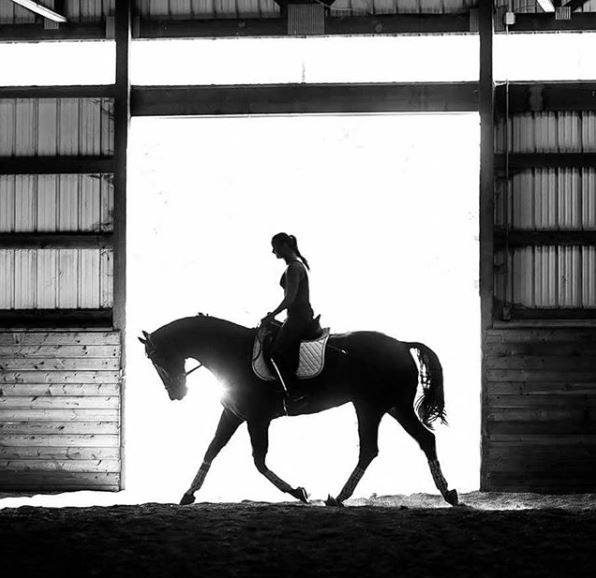
Feeding a horse properly is not easy. There are a number of principles that must be taken into account. What follows is 10 tips that should be taken into account when feeding.
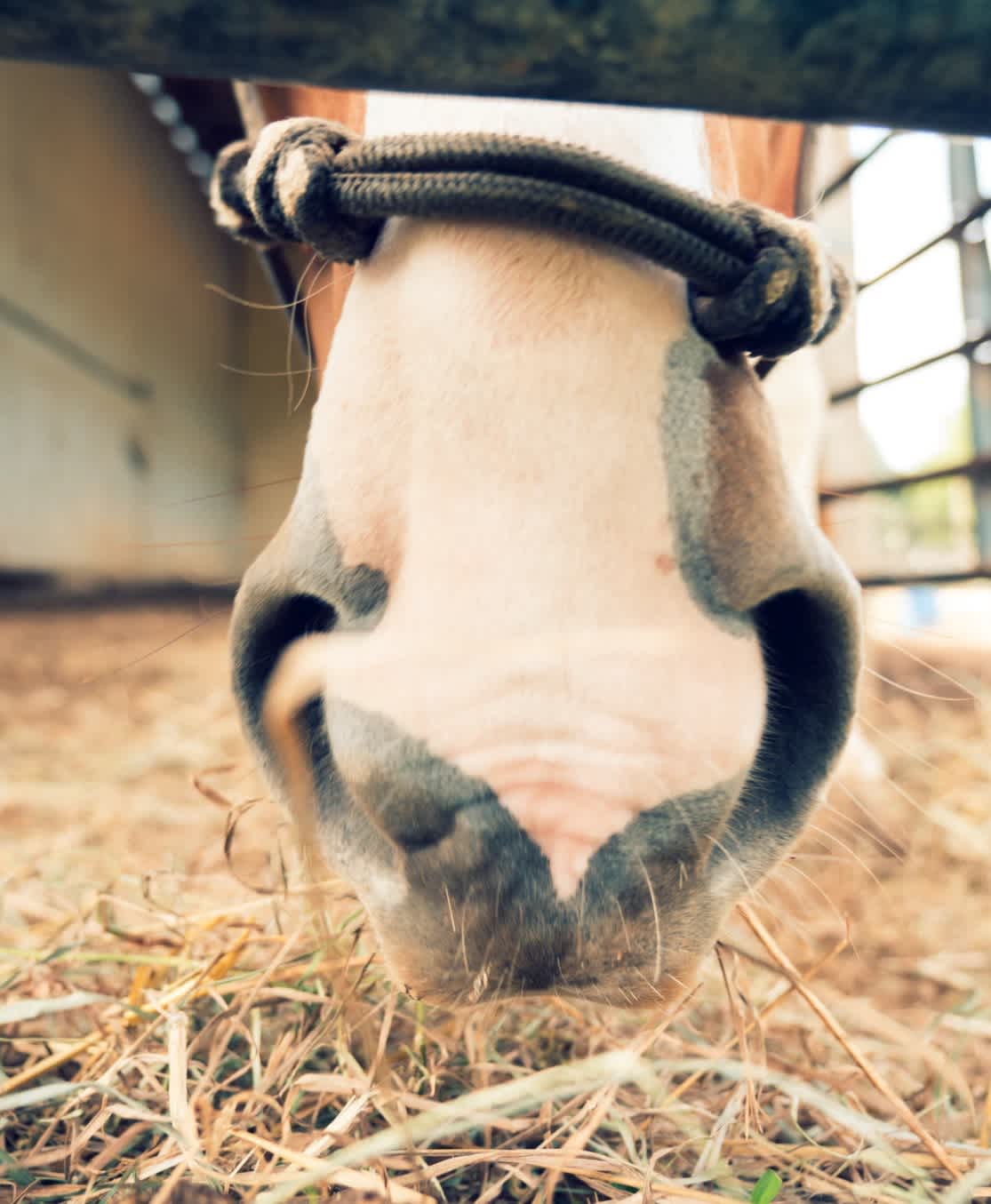
TIP 1 GOOD AND SUFFICIENT ROUGHAGE
By nature, a horse eats 14 to 16 hours a day. The digestive system is set up to receive a continuous stream of high-fibre food, such as hay, haylage, and silage. Therefore, ensure the horse receives sufficient roughage of sufficient quality. Since the quality of roughage can be very variable, and it is sometimes difficult to estimate the quality, have a roughage analysis performed.
This ensures you know what you are feeding your horse.
A guideline for the amount of roughage is approximately 1.5 kg of roughage per 100 kg of body weight. For example, a 600 kg horse should receive roughly 9 kg roughage.
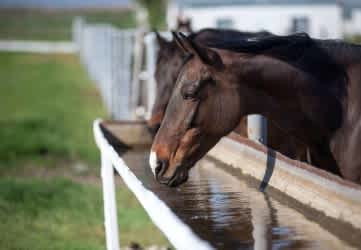
TIP 2 FRESH WATER
Ensure the horse always has fresh and clean water available. Clean drinking water must always be available both in the meadow and in the stable or paddock. Horses drink approximately between 15 and 30 litres of water per day. The amount is very dependent on the temperature and performance level to be achieved. Do not provide too much cold water at any one time, and keep an eye on the temperature of the water in the summer.
TIP 3 GRADUAL TRANSITIONS TO RATIONS
Every change in the ration of a horse must occur gradually. A change in concentrated feed takes about 7 to 10 days to complete, with the old concentrated feed slowly being phased out and the new concentrated feed slowly being introduced. The change from stable to pasture or pasture to stable must also happen gradually to prevent metabolic problems. Other changes in the ration must also always take place slowly. Digestion can also respond to the change in roughage. So in this case, make a gradual transition from old to new roughage.
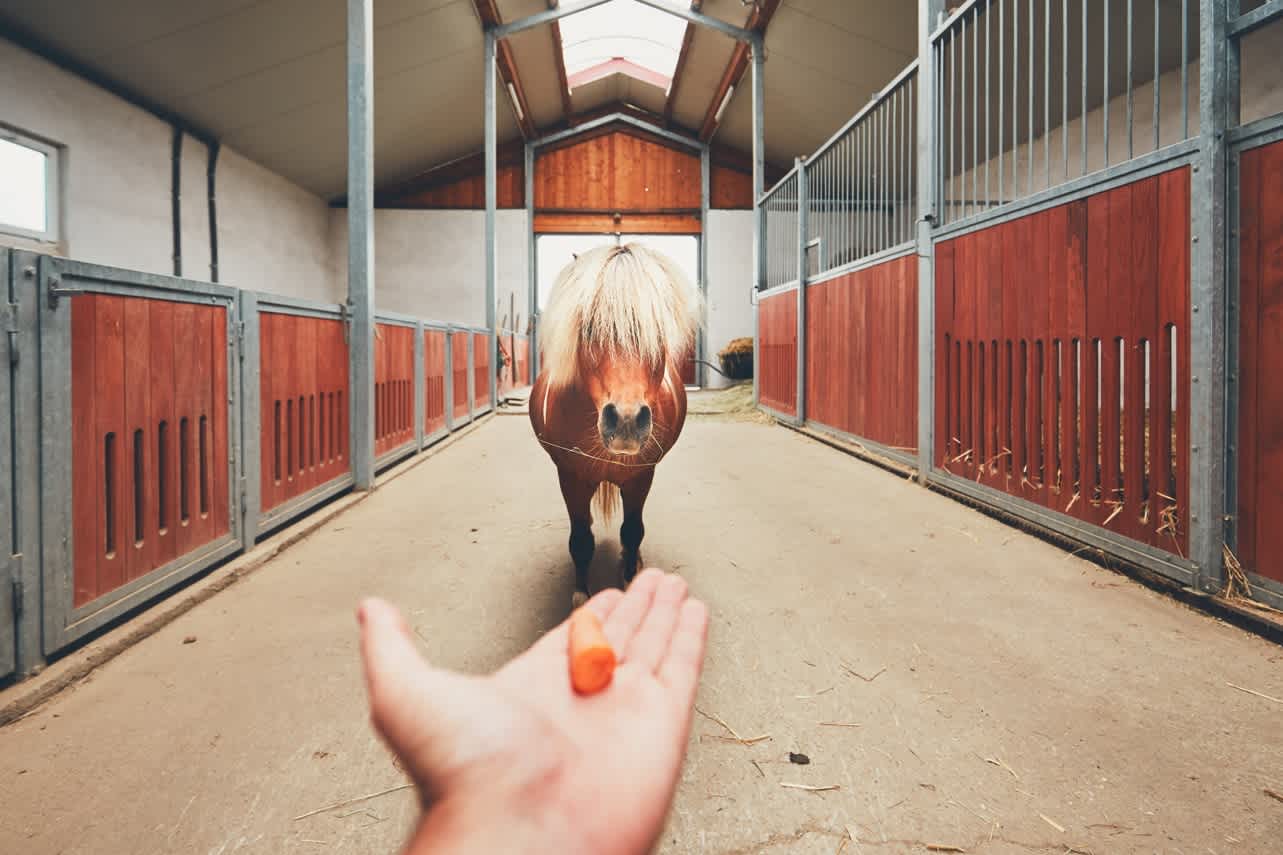
TIP 4: SMALL PORTIONS PER MEAL
A horse has a very small stomach with a capacity of about 8-15 litres, which is only about 7% of the volume of the gastrointestinal tract. Because the stomach is so small, a 600 kg horse cannot process more than 3 kg of concentrated feed per meal.
Therefore, divide the concentrated feed over different portions throughout the day. You can also delay the intake by mixing roughage and concentrated feed.
As a result, the horse is forced to chew more, which is better for digestion.
TIP 5 FEED SEVERAL TIMES A DAY
Horses do not have a gall bladder, which means the digestive juices are continuously fed into the small intestine. To maintain digestion, it is important to feed small portions more regularly. Divide the concentrated feed over 2 to 4 servings per day, and do not leave the horse on an empty stomach for more than 6 hours. For horses with ulcers, this should be a maximum of 1 hour.
*So feed roughage to the horse at least 3 times a day. Also, try to maintain a fixed feeding schedule. *
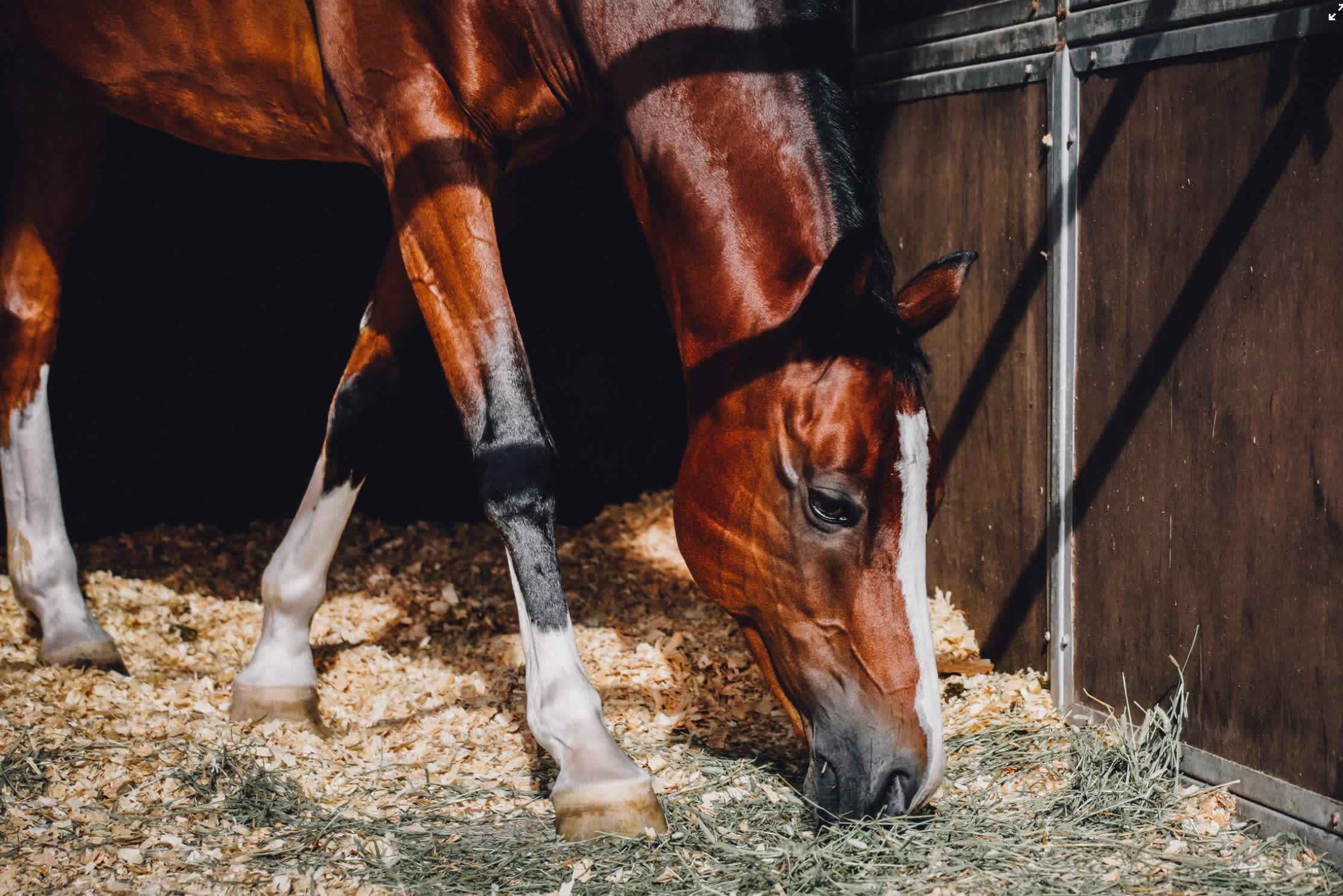
TIP 6: IN THE MORNING, FIRST ROUGHAGE, THEN CONCENTRATED FEED
If the horse does not have access to hay or straw at night, it is best to start digestion
with roughage in the morning and then give it concentrated feed. Roughage causes increased saliva production and triggers digestion, which will lead to improved digestion of the concentrated feed. Because the horse won't be so hungry after the roughage, it will also chew the concentrated feed better.
TIP 7 NO CONCENTRATED FEED BEFORE PERFORMANCE
Do not feed large amounts of concentrated feed just before work. Do not feed concentrated feed 3 hours before doing heavy work. It is possible to feed a small amount of roughage in advance. Performing work on a full stomach is unpleasant and can also cause a glucose dip about 2 hours after feeding. This can reduce performance. For light performances in combination with small amounts of concentrated feed, it is best not to use concentrated feed within 1 hour of the work.
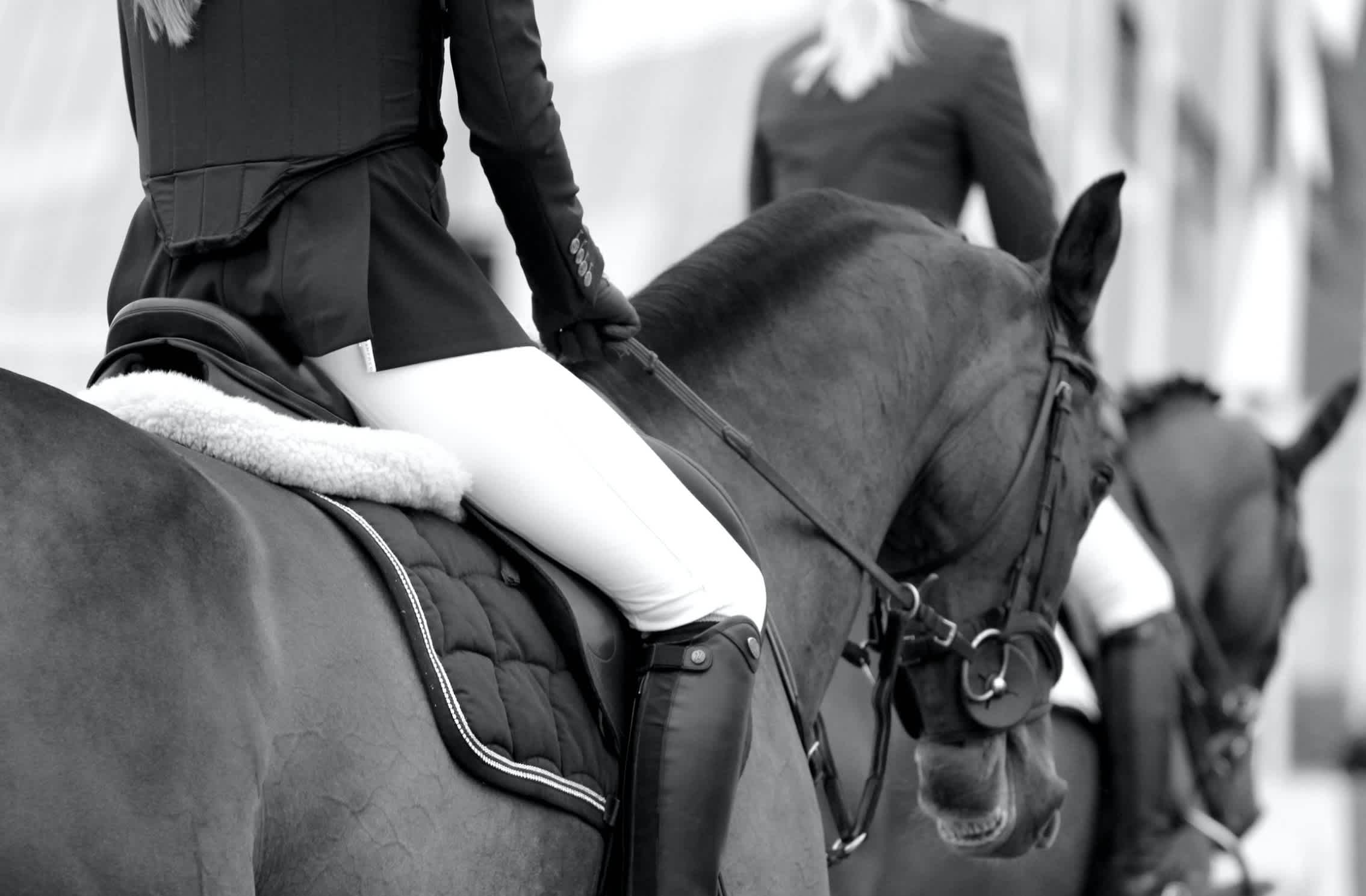
TIP 8 CAREFUL FEEDING
Be careful when feeding extra products, such as muesli; wet feed, carrots, apples and other treats. A horse benefits from as few changes as possible when rationed. A constant, good and balanced ration is best. Extras and treats can disrupt the ration and cause the horse to be overfed.
Extra minerals and vitamins are not required under normal circumstances. Feeding supplements may have an effect in special cases. Ensure the basis of the ration is in order, which means start with a good quality roughage and adjust the amount of concentrated feed in combination with the performance and condition of your horse.
You can then decide which supplements your horse needs if the compound ration highlights a deficiency.
TIP 9 TEETH
Good digestion starts with good teeth.
If a horse's teeth are not in order, this can result in reduced absorption of nutrients.
Have your horse's teeth checked regularly by a horse dentist, and at least once a year.
Checking the teeth is especially important with older horses.
TIP 10 WORMING
Worms are a known problem in horses and can have a negative effect on the health of the horse. Horses with worms can lose weight because the food is not absorbed properly. Regular worming and alternating worming products can help prevent the worms building up resistance. By carrying out a manure test, the best worming method for your horse can be determined.
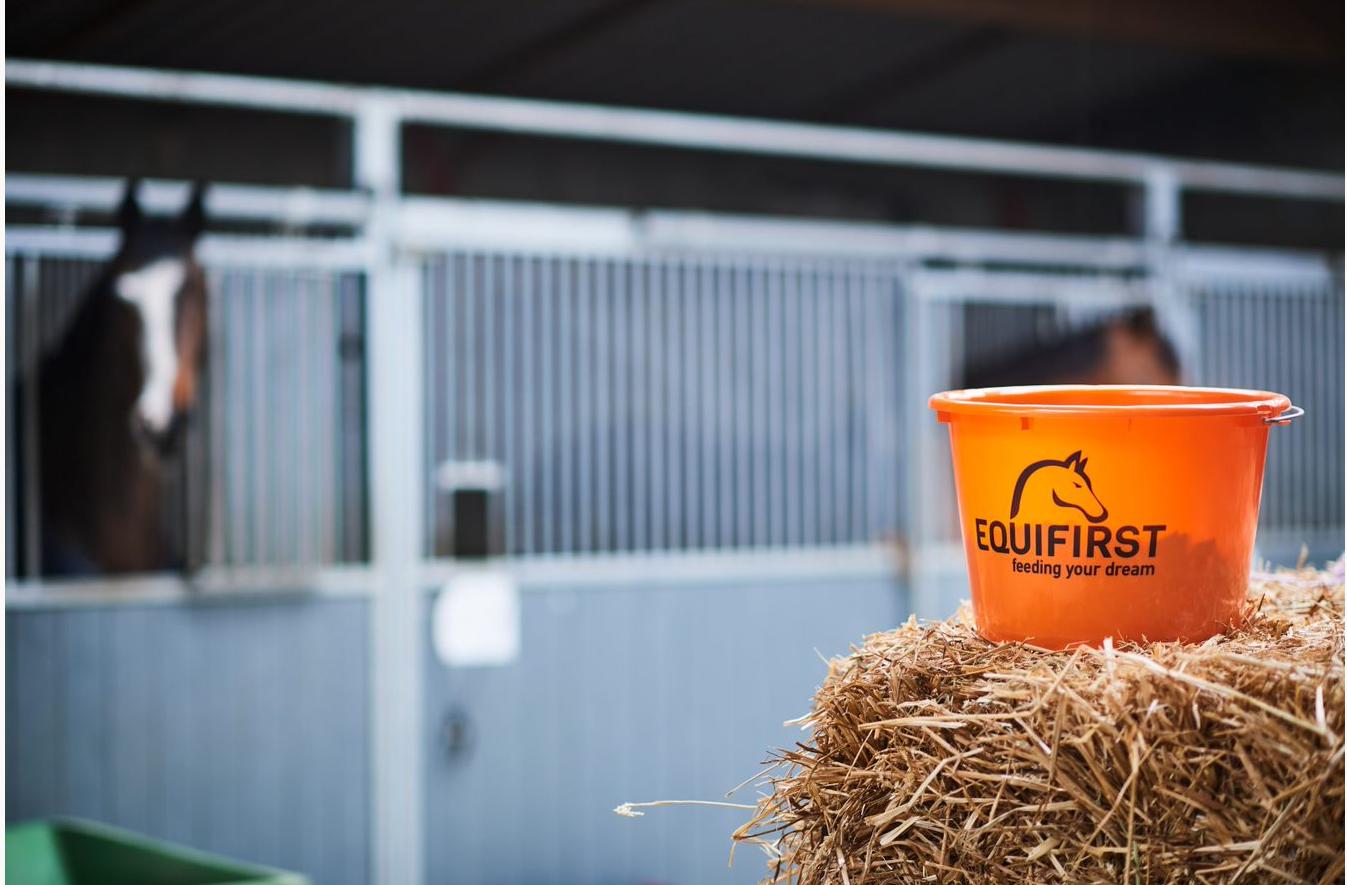
Know what you are feeding, look critically at the ration, broaden your knowledge. Always consult an expert when in doubt!
